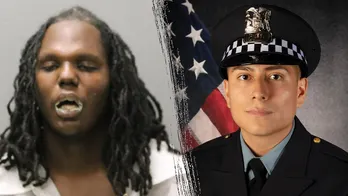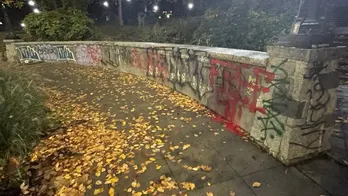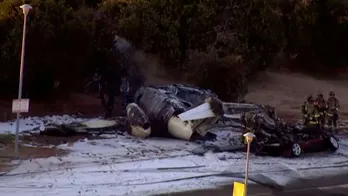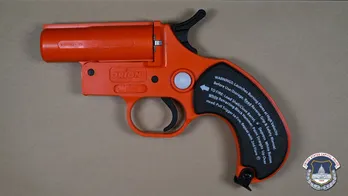Courts have long seen K-9 dogs as impartial. Now police bodycams hold them accountable
For decades, American courts have had to take it on faith that drug-sniffing dogs were impartial. Testimony by a dog's handler, along with training records and credentialing by a local K-9 organization, were usually enough. But the recent spread of body cameras now threatens to upend that faith.
A newly filed federal lawsuit in Texas shows cameras' potential to undermine K-9 unit legitimacy. Houston resident Alek Schott accuses Bexar County Sheriff's deputy Joel Babb of pulling him over on Interstate 35 on false pretenses, and then, when he refused to give permission to search his pickup truck, he says K-9 unit deputy Martin A. Molina III prompted his dog to "alert" to the scent of drugs.
"These guys are trying to destroy my life"
Historically, that claim would have been nearly impossible to prove. But in this case, Schott requested and received the officers' body camera footage, giving him almost the same view the K-9 handler had — including the moment the handler's right hand made a gesture toward the attentive dog, which then jumped up on the pickup's door.
"It's clear to me that he's telling the dog to alert," Schott says. "I thought, 'These guys are trying to destroy my life.' "
No drugs were found in Schott's pickup, and the county later reimbursed him for damage done during the search — including dog scratches outside and inside the truck. The sheriff's office would not comment to NPR on the case, citing "pending litigation."
Thirty-seven-year-old Schott, who works for his father's company supplying the oil and gas industry, is represented by Christie Hebert, an attorney with the Institute for Justice, a civil liberties organization focused on search and seizure. She says they're pursuing the lawsuit because they believe the deputies violated Schott's rights — and did so in part by relying on the dog.
"You think of a dog as not having an agenda," Hebert says. "But the fact is, they're influenced by their handlers' agenda and they want to please their masters."
That's long been a nagging doubt about drug-sniffing dogs: that handlers might influence them to alert to a scent that may not be there. Research has shown handlers may not even realize they're doing it. Some K-9 trainers have called for "double-blind" testing of the dogs, in which the location and existence of test drugs are randomized, unknown even to the dog's handler. But that approach has been slow to catch on, and is often met with hostility.
"That appears to be a cue of some sort that he gives the dog"
Former K-9 officer and trainer Andy Falco hopes the spread of body cameras will change that.
"I think it's good for the K-9 units that these things are out there," he says of cameras. "It'll make them train harder, and perhaps even some of them that weren't doing double-blind sniffs will start doing double-blind sniffs!"
Falco works as an expert witness in cases involving sniffer dogs, and he says the number of legal challenges based on close-up video has exploded. Most cases involve cameras, now, and close-up reviews of every gesture and move of handlers and dogs. In one case he worked on, the Idaho Supreme Court threw out a drug conviction because it decided the K-9 "trespassed" on a vehicle with its paw — a degree of after-the-fact scrutiny that would have been impossible before body cameras.
And when Falco is shown the video from Bexar County, he sees why Schott is suing. "The right hand facing up, and then moving it upward — that is the command to sit. There's not any reason why he would be doing it where he's doing it, so it is out of place," he says. "That appears to be a cue of some sort that he gives the dog."
Other K-9 trainers say the video isn't a slam-dunk, and that there could be innocent explanations for the gesture. But one thing is clear to them: going forward, K-9 units should expect their every move and gesture could come under review after the search is over.
Disclaimer: The copyright of this article belongs to the original author. Reposting this article is solely for the purpose of information dissemination and does not constitute any investment advice. If there is any infringement, please contact us immediately. We will make corrections or deletions as necessary. Thank you.







